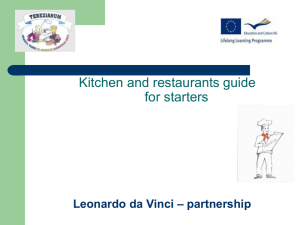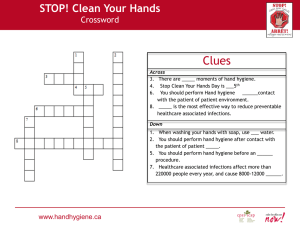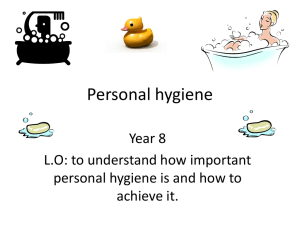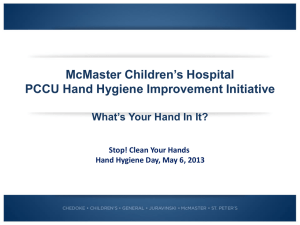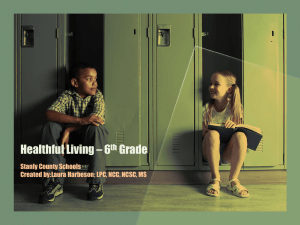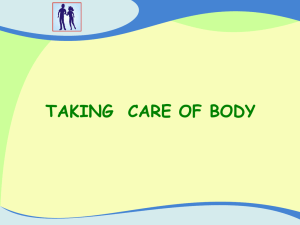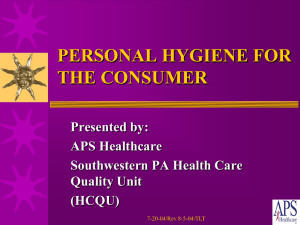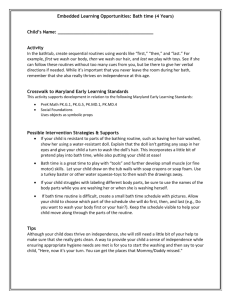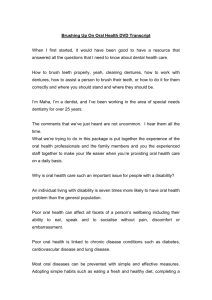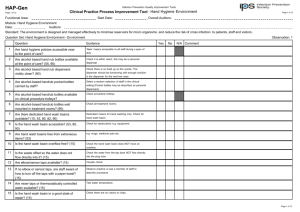Healthy Habits
advertisement
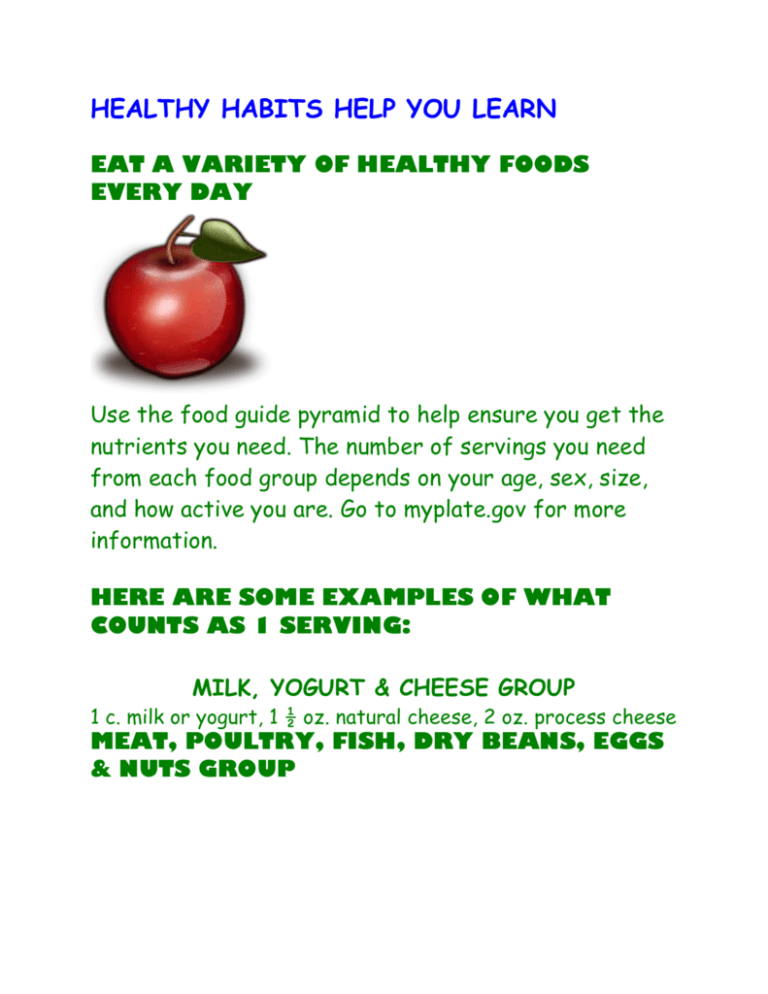
HEALTHY HABITS HELP YOU LEARN EAT A VARIETY OF HEALTHY FOODS EVERY DAY Use the food guide pyramid to help ensure you get the nutrients you need. The number of servings you need from each food group depends on your age, sex, size, and how active you are. Go to myplate.gov for more information. HERE ARE SOME EXAMPLES OF WHAT COUNTS AS 1 SERVING: MILK, YOGURT & CHEESE GROUP 1 c. milk or yogurt, 1 ½ oz. natural cheese, 2 oz. process cheese MEAT, POULTRY, FISH, DRY BEANS, EGGS & NUTS GROUP 2-3 oz. cooked lean meat, poultry or fish, (½ cup dry cooked beans, 1 egg or 2 Tbsp. Peanut butter count as 1 oz. of lean meat VEGETABLE GROUP 1 c. leafy raw vegetables, ½ c. chopped raw vegetables or cooked vegetables, ¾ c. vegetable juice FRUIT GROUP 1 med. apple, banana, or orange, ½ c. chopped, cooked or canned fruit, ¾ c. fruit juice BREAD, CEREAL, RICE, & PASTA GROUP 1 slice of bread, 1 oz. ready-to-eat cereal, ½ c. cooked cereal, rice or pasta FATS, OILS, & SWEETS Examples are salad dressings, cream, butter, margarine, sugars, soda, candies and cakes. These foods should be limited because they provide little in the way of nutrients. KEEP PHYSICALLY FIT Getting enough exercise and rest makes you stronger! healthier! and more energetic! Relax and take a break now and then and do something you enjoy! Stay flexible with exercises that stretch your arms, legs back and torso! Exercise to stay fit. You should try to get 30 minutes or more of moderate physical activity on most days of the week, (every day would be better!), Don’t forget to consult your health care professional before beginning an exercise program Sleep 6-9 hours every night. You should wake up feeling rested! MAKE GOOD PERSONAL HYGIENE PART OF YOUR DAILY ROUTINE A daily routine of personal hygiene will keep your body clean and healthy WHY IS PERSONAL HYGIENE IMPORTANT? It can affect how you feel about yourself and how others feel about you! GOOD HYGIENE HELPS PREVENT PROBLEMS BY: Removing dirt and germs, providing nutrients for your body, keeping your body in good working condition POOR HYGIENE CAUSES PROBLEMS SUCH AS: Infection and illnesses, loss of teeth and poor self image IMPORTANT PARTS OF PERSONAL HYGIENE Caring for your skin Choose the right soap-use the soap that suits your skin type, dry, oily or in between Bathe often-Most people take a bath or shower everyday, but every other day may be OK if you have dry skin To bathe properly; Lather your whole body well with soap Rinse well Dry well Wash your face-use a mild soap and warm water Remember to use your deodorant or antiperspirantapply when your skin is cool and dry SOME SPECIAL CARE AREAS Ears Wash the outside only. Never put anything inside your ear! Feet Wash them every day and dry them well. Avoid tight shoes and very high heels Toenails Keep your toenails clean and trimmed. Hands Wash your hands often with soap and warm water rinse and dry well. Wash your hands: Before eating After using the restroom After playing outdoors After petting animals After sneezing, coughing or blowing your nose AND Whenever they are dirty! Remember to rub your hands together for 20 seconds to be sure they get clean!! Fingernails Keep your nails clean and don’t bite them TAKE GENTLE CARE OF YOUR HAIR Brushing tips Brush or comb your hair every day. Keep your brushes and combs clean and NEVER NEVER share combs and brushes with anyone Shampooing tips You should shampoo your hair on a regular basis. How often depends on the type of hair you have. Follow these steps when you shampoo: Wet your hair and put shampoo on it. Rub your hair and head with your fingertips Rinse completely with water If you choose to use a conditioner, follow the directions on the label Pat your hair with a towel and comb it carefully TAKING CARE OF YOUR MOUTH Proper oral hygiene is important in preventing bad breath, toothaches, gum problems and tooth loss. Here’s how to protect your teeth and gums: Use the right toothbrush It should have soft bristles and be the size and shape that allows you to reach all surfaces of every tooth Remember to replace your toothbrush when bristles become bent and NEVER NEVER share toothbrushes with others Brush your teeth at least twice a day using a fluoride toothpaste Here is how to brush your teeth: Press bristle tips against the gum line at an angle Scrub gently with short back and forth strokes. Scrub all chewing surfaces Brush your tongue and rinse your mouth Rinse your toothbrush Remember Healthy habits help you learn
